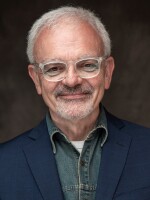DEBORAH AMOS, host:
This is MORNING EDITION from NPR News. I'm Deborah Amos, in for Renee Montagne.
STEVE INSKEEP, host:
And I'm Steve Inskeep. Good morning.
Barack Obama's visit to the Middle East is taking him to both sides of the dividing lines between Israelis and Palestinians. But while visiting both sides, he is affirming one point held by American presidents from both parties over the years.
Senator BARACK OBAMA (Democrat, Illinois; Democratic Presidential Candidate): The most important idea for me to reaffirm is the historic and special relationship between the United States and Israel, one that I have affirmed throughout my career and one that I would intend to not only continue, but actually strengthen.
INSKEEP: That's Barack Obama, traveling in the Middle East. NPR's Don Gonyea is traveling with the Democratic presidential candidate, and he's on the line from Jerusalem. Don, what have you been seeing and hearing?
DON GONYEA: Well, we have been touring Jerusalem today with Senator Obama. He has had a number of high-level meetings. He met with President Shimon Peres. He toured the Holocaust Museum. It's his second time through that museum. He says he was there a couple of years ago when he came back through this part of the world - and meeting today with Prime Minister Ehud Olmert.
But as you said, he is, you know, trying to balance things. And over the course of this day, he will have visited the West Bank. He's going to Ramallah. He is meeting there with Palestinian President Mahmoud Abbas. And it is probably the trickiest day of Senator Obama's overseas trip.
This is a place where he is greeted warmly, but also with some skepticism. There are questions about what a Barack Obama presidency might mean for Israel. That's why we're hearing the kind of statements that we heard in that tape you just played of him reassuring them that he will be a good friend of Israel.
INSKEEP: What questions do Israelis have about Obama?
GONYEA: They are worried that in dealing with the peace process with the Palestinians that in forcing compromise and trying to broker a deal, he might push the Israelis harder. He might side perhaps a bit too much with the Palestinians. Also, his statements about negotiations and talking to Iran and President Ahmadinejad. So those are the kinds of questions, and that's obviously reflected in the kind of things we're hearing from Jewish voters in America.
INSKEEP: Well, are Palestinians any happier about Barack Obama?
GONYEA: They have some concerns as well. He, again, you know, will no doubt have a warm meeting with Mahmoud Abbas. But there's concern there that in his desire to win votes back in America, that he might bend over backwards to please Israel and Jewish voters back in America. So nobody here is entirely happy with him.
INSKEEP: You know, Don, when I listen to that tape of Barack Obama, the most significant thing to me might be the pauses, someone choosing every work very carefully, which is the circumstance he finds himself in, I suppose, after some past statements that reflected in one way or another in the Middle East.
GONYEA: Exactly. He gave a speech to APAC in Washington earlier this year, and he spoke then about there needing to be an undivided Jerusalem - undivided was the term that he used. Now, here, his aides are saying undivided, yes, undivided by concrete and barbed wire. When we pressed those aides, saying were there other ways that that city could be divided? They said, well, that should all be part of final status negotiations when an agreement on a Palestinian stake is worked out.
So it speaks to how complicated it is. And you're right. You can hear it in the pauses, in how carefully he is speaking while here at all of these (unintelligible).
INSKEEP: NPR's Don Gonyea is at a busy press center in Jerusalem, where Barack Obama is paying a visit to the Middle East, visiting both Israelis and Palestinians. Don, thanks very much.
GONYEA: Glad to be here. Transcript provided by NPR, Copyright NPR.







